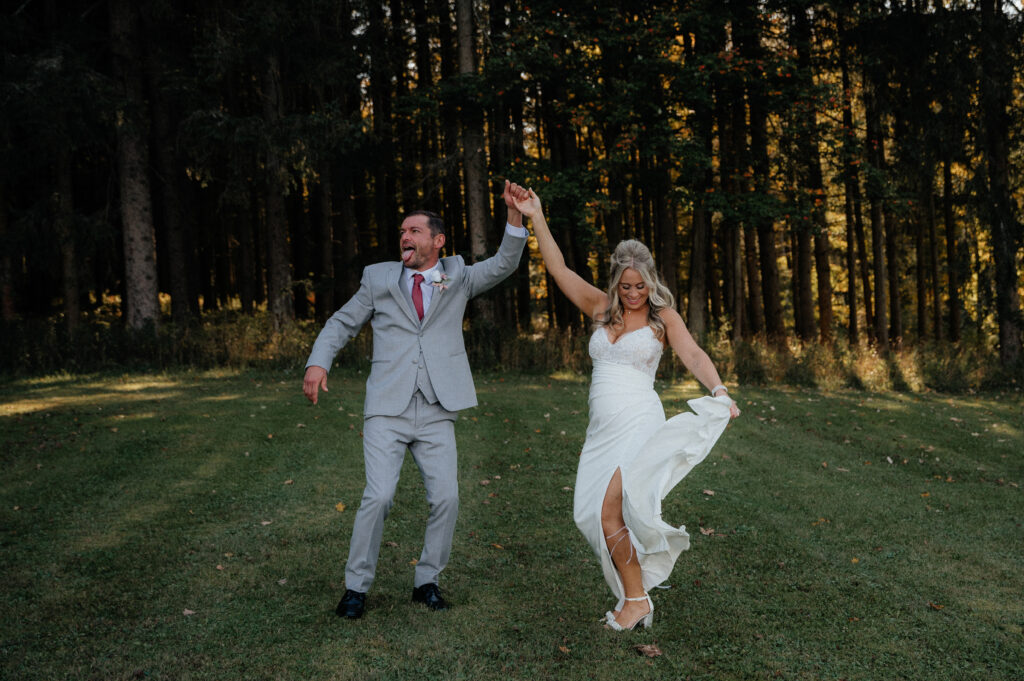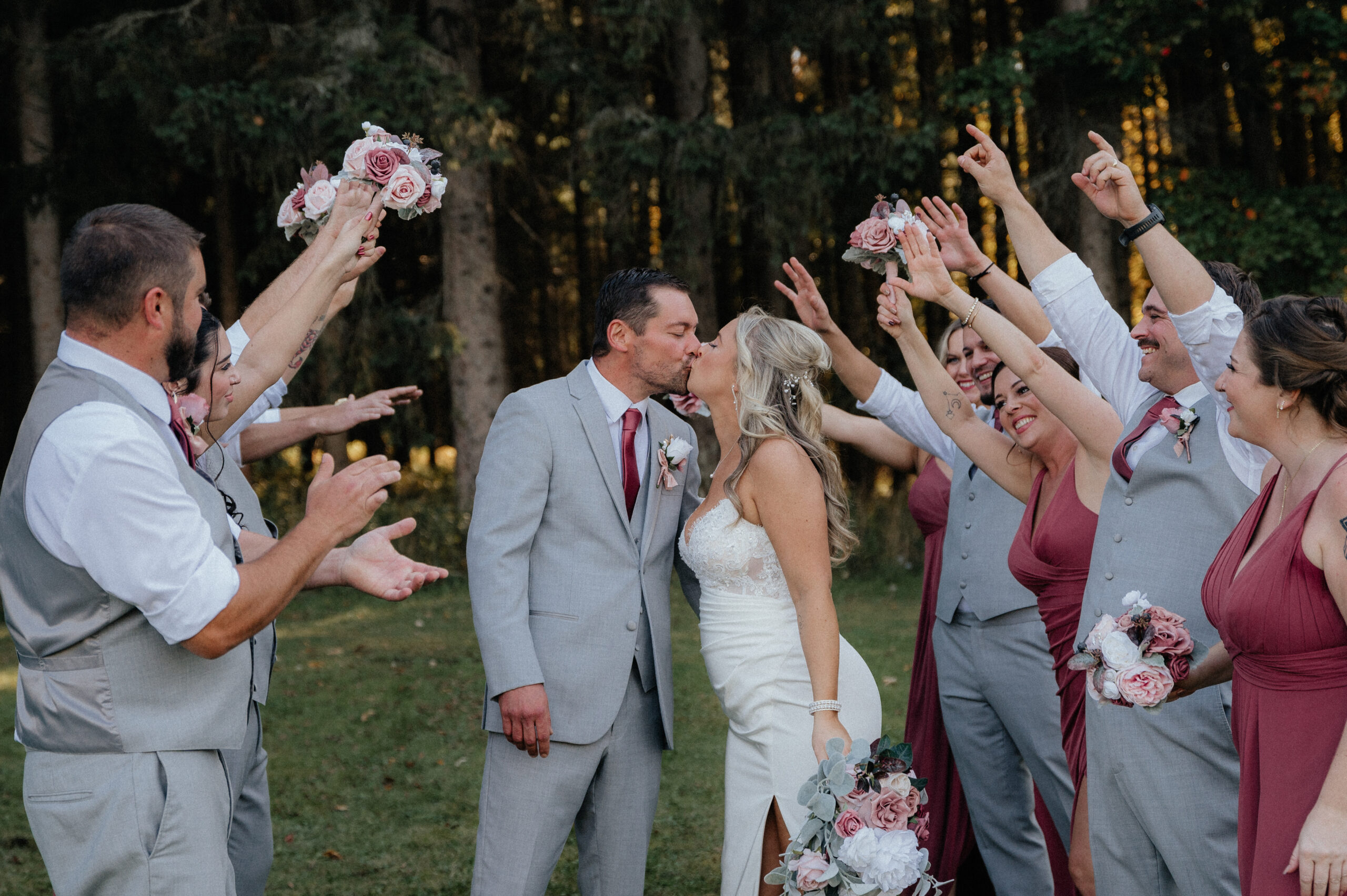
Planning a small wedding can be a wonderfully intimate and personal experience. If you’re ready to keep things small but meaningful, here’s a guide that takes you through all the key steps and considerations for planning a wedding with fewer guests but still plenty of heart.
1. Decide if a Small Wedding is Right for You
A small wedding might be the best choice if:
- You prefer an intimate setting: If a large wedding feels overwhelming or stressful, a small wedding might be more aligned with your needs. It allows you to focus more on your relationship and the key people in your life.
- You want more flexibility with your budget: A smaller guest list means you can spend more on elements that matter most to you, such as personalized decor, photography, or a venue that feels unique.
- You value meaningful connections: A small wedding allows you to create deeper, more personal memories with the people who matter most.
2. Managing Family Expectations
If you come from a large family, this part can be tricky. Here’s how to handle it:
- Set Expectations Early: Make it clear early on that your wedding will be small, and everyone won’t be invited. This can help manage expectations and prevent hurt feelings later on.
- Be Intentional with Your Guest List: Only invite people you cannot imagine getting married without. Don’t feel obligated to invite someone just because they are family or a distant friend.
- Create Boundaries: It’s common for people to push back on a small guest list, so establish boundaries and stick to them. Be clear about your wishes and ask for support in your decision.
- Kids or No Kids?: If you’re not including children, be sure to communicate this early. Consider how this might affect guests and plan accordingly, maybe providing a babysitting option if needed.
3. Choosing the Right Venue
- Think Outside the Box: Consider non-traditional venues like a local bed & breakfast, a favorite restaurant, or even a vacation rental (Airbnb/VRBO). These can be more personal and allow you to pick a venue that matches your vibe.
- Location is Key: Choose a place that is meaningful to you. It might be a location where you’ve vacationed together, where you got engaged, or somewhere that holds sentimental value.
- Consider Logistics: Make sure the venue accommodates your plans (rain plans if outdoors, food and seating if needed, etc.) and that it reflects the overall vibe of your wedding.
4. Selecting Your Vendors
Not all vendors are a good fit for a small wedding, so choose wisely:
- Wedding Planner: A good planner can be invaluable, especially for a small wedding where attention to detail is key. Look for one experienced with intimate weddings who understands your vision.
- Photographer: Choose a photographer whose style aligns with the intimate nature of your wedding. Their personality is important, as they’ll be with you for much of the day.
- Catering: If your venue doesn’t provide food, get creative with your catering. Consider a family-style dinner, a food truck, or something unconventional to match the vibe of your wedding.
- Entertainment: For a small wedding, you may not need a DJ. Instead, consider live music for a more intimate atmosphere, or even lawn games for a casual and fun touch during your cocktail hour.
- Florist: Look for florists who specialize in smaller, bespoke arrangements. Since your wedding will be smaller, you can focus on custom flowers and floral installations that reflect your personal style.
- Officiant: Choose an officiant who understands the significance of your intimate celebration. Many couples opt for a friend or family member to officiate, making the ceremony feel even more personal.
5. The Experience
Focus on creating a bespoke experience for you and your guests:
- Personal Touches: Small weddings are perfect for custom details. Think of unique ways to include your guests, like handwritten thank-you notes or small personalized favors.
- Relaxed Schedule: Without a large guest list to manage, you have the flexibility to slow down and truly enjoy your wedding day. Customize your timeline to ensure there’s ample time for photos, mingling, and savoring the moment.
6. Handling Post-Wedding Celebrations
- Include the Uninvited: For guests who couldn’t be invited, consider hosting a post-wedding celebration, like a BBQ or a small gathering to share memories and photos. You could also send a post-wedding announcement or livestream the ceremony.
- Don’t Apologize for Your Choice: Not everyone will understand your decision for a small wedding, but that’s okay. Stay firm in your choice, and if people question your decision, gently remind them that you’re creating an experience that reflects what’s most important to you as a couple.
Final Thoughts
Planning a small wedding is an opportunity to celebrate in a way that is true to who you are as a couple. Keep things simple, focus on the meaningful moments, and prioritize quality over quantity. Ultimately, the best wedding is the one that makes you feel connected to each other and to those you love.
For more tips, inspiration, or to connect with other couples planning small weddings, consider joining Facebook groups, looking up wedding blogs, or seeking advice from a wedding planner who specializes in intimate events. You’ve got this!

View comments
+ Leave a comment